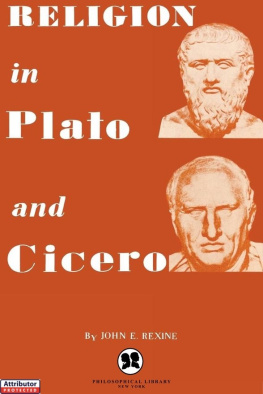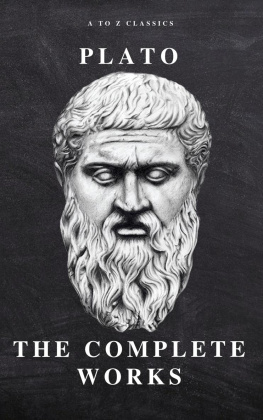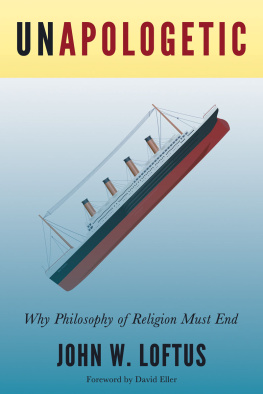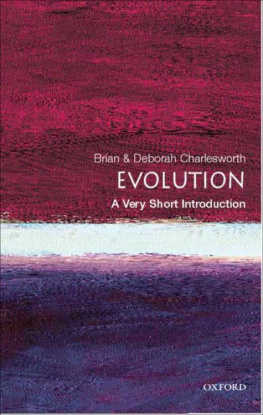Max Charlesworth - Philosophy and Religion from Plato to Postmodernism
Here you can read online Max Charlesworth - Philosophy and Religion from Plato to Postmodernism full text of the book (entire story) in english for free. Download pdf and epub, get meaning, cover and reviews about this ebook. year: 2002, publisher: Oneworld Publications, genre: Religion. Description of the work, (preface) as well as reviews are available. Best literature library LitArk.com created for fans of good reading and offers a wide selection of genres:
Romance novel
Science fiction
Adventure
Detective
Science
History
Home and family
Prose
Art
Politics
Computer
Non-fiction
Religion
Business
Children
Humor
Choose a favorite category and find really read worthwhile books. Enjoy immersion in the world of imagination, feel the emotions of the characters or learn something new for yourself, make an fascinating discovery.

- Book:Philosophy and Religion from Plato to Postmodernism
- Author:
- Publisher:Oneworld Publications
- Genre:
- Year:2002
- Rating:5 / 5
- Favourites:Add to favourites
- Your mark:
- 100
- 1
- 2
- 3
- 4
- 5
Philosophy and Religion from Plato to Postmodernism: summary, description and annotation
We offer to read an annotation, description, summary or preface (depends on what the author of the book "Philosophy and Religion from Plato to Postmodernism" wrote himself). If you haven't found the necessary information about the book — write in the comments, we will try to find it.
Philosophy and Religion from Plato to Postmodernism — read online for free the complete book (whole text) full work
Below is the text of the book, divided by pages. System saving the place of the last page read, allows you to conveniently read the book "Philosophy and Religion from Plato to Postmodernism" online for free, without having to search again every time where you left off. Put a bookmark, and you can go to the page where you finished reading at any time.
Font size:
Interval:
Bookmark:
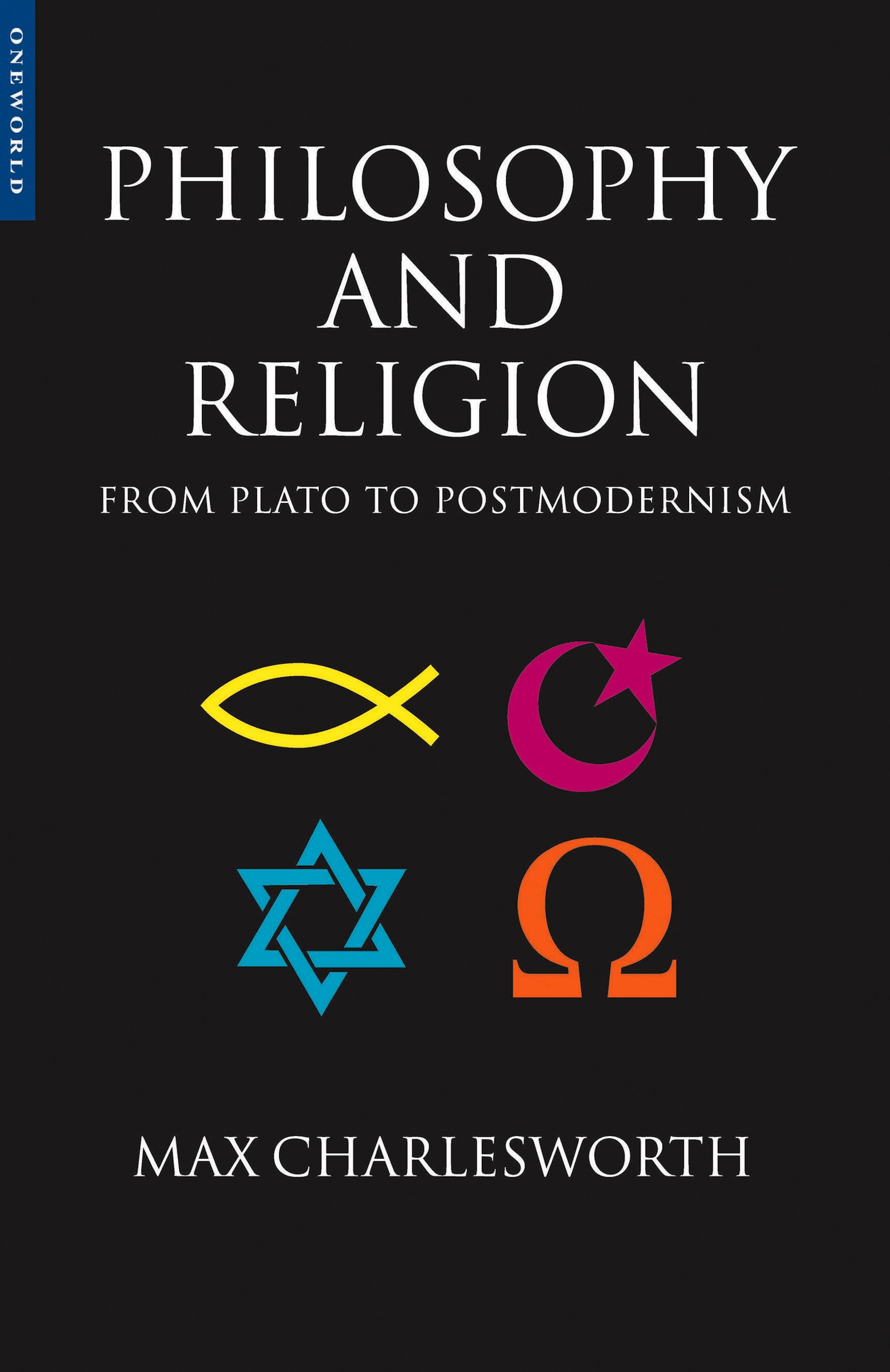
AND
RELIGION
RELATED TITLES PUBLISHED BY ONEWORLD
The Fifth Dimension, John Hick, ISBN 1851681914
Global Philosophy of Religion: A Short Introduction, Joseph Runzo, ISBN 185168235X
God: A Guide for the Perplexed, Keith Ward, ISBN 1851682848
The Phenomenon of Religion, Moojan Momen, ISBN 1851681612
The Meaning of Life in the World Religions, Edited by Joseph Runzo and Nancy M. Martin, ISBN 1851682007
Love, Sex and Gender in the World Religions, Edited by Joseph Runzo and Nancy M. Martin, ISBN 1851682236
Ethics in the World Religions, Edited by Joseph Runzo and Nancy M. Martin, ISBN 1851682473
God, Faith and the New Millennium, Keith Ward, ISBN 1851681558
AND
RELIGION
MAX CHARLESWORTH

PHILOSOPHY AND RELIGION: FROM PLATO TO POSTMODERNISM
Oneworld Publications
10 Bloomsbury Road
London WC1B 3SR
England
www.oneworld-publications.com
This ebook edition published in 2013
M. J. Charlesworth, 2002
All rights reserved.
Copyright under Berne Convention
A CIP record for this title is available
from the British Library
ISBN: 9781851683079
eISBN: 9781780744605
Cover design by Design Deluxe
Typeset by Saxon Graphics Ltd, Derby
Stay up to date with the latest books,
special offers, and exclusive content from
Oneworld with our monthly newsletter
Sign up on our website
www.oneworld-publications.com
The present work is a substantial revision of a book first published in 1972. Coincidentally, in the thirty years between 1972 and 2002, an extraordinary revolution has taken place in the field of philosophy of religion both with respect to its content, or scope, and its method. First, the scope of the philosophy of religion has been vastly enlarged mainly as a result of the long overdue recognition of the radical diversity of religions. As a result, we can no longer speak of religion as though it were a specific and unified field of human life; rather, we must speak of religions in their irreducible plurality.
These religions range from the great world religions, such as Judaism, Christianity, Islam, Hinduism and the several kinds of Buddhism, to the minority or local religious systems of indigenous peoples such as the Australian Aborigines and Amerindian groups. They also include the quasi-religious ways of life of classical antiquity in the West Stoicism, Epicureanism, Plotinian neo-Platonism and the many forms of Gnosticismare as various and diverse as human languages. One might say, indeed, that there is a religious Tower of Babel.
That diversity of religions has always been there, so to speak, but Western philosophers of religion have not recognised it and taken it seriously until very recently. For the most part they assumed that all religions were basically the same, despite their outward forms of expression, and could be eventually reconciled with each other by a kind of special providence. However, whether we like it or not, the diversity of religions, great and small, is a real and irreducible brute fact which cannot be glossed over or explained away.
Confronted with that diversity we can no longer simplistically define religion as being about the Holy, or the numinous (Rudolf Otto), or the Sacred (Emile Durkheim), or the object of unconditional concern (Paul Tillich), as though it were possible to discern a common denominator among all the religions, and as though Western Christianity were a kind of gold standard or benchmark for real or authentic religions. Nor can we complacently assume that at bottom all religions say very much the same thing.
Jacques Dupuis, the noted scholar of world religions, writes that we must repudiate a universal theology of religions that would transcend the various religious faiths There is no such thing as a universal theology of religions; there is only a plurality of theologies. This recognition of the radical plurality and diversity of religions has presented a direct challenge to the philosophy of religion in that the claims to universal and exclusive validity of the major monotheistic religions, especially Christianity and Islam, raise prima facie insoluble questions about how their respective assumptions that they are the sole legitimate vehicle of Gods revelation to the whole of mankind, can be reconciled with each other. Again, they raise difficult questions about how religions may be measured against, and compared with, each other. We are, then, now acutely aware that the comparison of religious systems and their evaluation as more or less evolved, or developed, or more primitive (as in a great deal of nineteenth-century philosophy of religion), is at best a very delicate, and perhaps dubious, business.
The second reason for the enlargement of the scope of philosophy of religion is to be found in the invasion of the social sciences anthropology, sociology, psychology, history into the study of religious systems. Most contemporary anthropologists and sociologists, as against late-nineteenth-century positivistically inclined social scientists, now see religion as an essential part of any human culture. Thus Geertz and other anthropologists
It remains true, however, that the social scientists concern with religion and religious phenomena differs essentially from the interest and focus of the philosopher of religion. Philosophy of religion is concerned to adumbrate what might be called, in Kantian terms, the conditions of possibility of the religious sphere, as distinct, for example, from the ethico-political sphere, or the aesthetic sphere, or the sphere of scientific enquiry. The inquiries of the social sciences into religious phenomena, on the other hand, presuppose that there is such a sphere, however loosely it may be defined, and they cannot themselves investigate whether or not there is actually a domain which transcends the world of our ordinary experience and which is not accessible to empirical enquiry.
Third, the emergence of new ways of doing philosophy, as in the various tendencies misleadingly called Postmodernism, have emphasised how much religions are constructs or inventions (akin to great artistic movements like Classicism and Romanticism), and how the appropriate method of inquiring into religion and religious phenomena is a deconstructive one, that is, an attempt to reveal the historical and cultural and other ways in which a discourse, or discipline, or sphere of human thought, is built up.
Thus, from Nietzsche to Heidegger and Derrida there has been a sustained critique of the philosophical (metaphysical) presuppositions of Western religious belief. Modern Western philosophy, so Derrida claims, has been obsessed by foundationalism, that is seeing the task of philosophy as the uncovering of the ultimate foundations or fundamental principles of knowledge and of reality. This has traditionally chimed in with Western and Middle Eastern religious views which see God as the foundation or ground (arche) of being and the question is whether Western religions such as Judaism, Christianity, and Islam, can be conceptualised without the older, and what is taken to be the discredited, philosophical or metaphysical view. In this context the death of God which Nietzsche proclaimed is in effect the death of a metaphysical God, and the task of the philosopher of religion is to see what meaning can be given to religious discourse once the traditional (and untenable) metaphysical God has been exorcised. Martin Heidegger and Jacques Derrida have been the two main contemporary figures concerned with this central issue upon which the possibility of a philosophy of religion depends.
Font size:
Interval:
Bookmark:
Similar books «Philosophy and Religion from Plato to Postmodernism»
Look at similar books to Philosophy and Religion from Plato to Postmodernism. We have selected literature similar in name and meaning in the hope of providing readers with more options to find new, interesting, not yet read works.
Discussion, reviews of the book Philosophy and Religion from Plato to Postmodernism and just readers' own opinions. Leave your comments, write what you think about the work, its meaning or the main characters. Specify what exactly you liked and what you didn't like, and why you think so.

